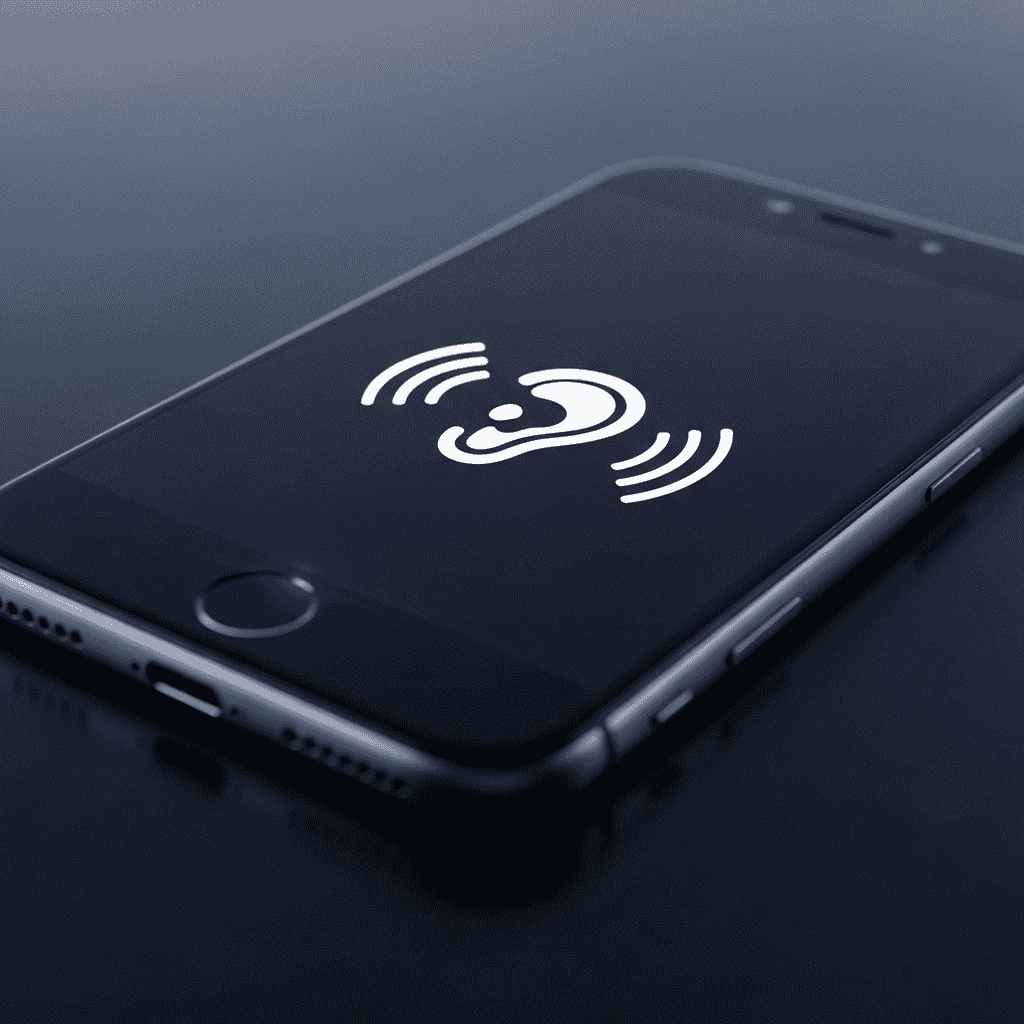
We all had that strange moment once in a while. You and your friend are having a conversation about a new pair of shoes, and later that day—bam—an ad for those very shoes appears on your Instagram. Such precision is rare for coincidences. So, it’s only natural that you start questioning: Is it that my phone is listening to me?
The truth that we might not want to accept is that yes, in a lot of aspects, it is. Smart devices are designed to react to our speech, and some applications are merely taking advantage of this. But fear not—your power is greater than you think. So if we analyze it step-by-step, it would be easier to understand how it happened, why it happened, and what could be done in order to prevent the phone from snooping on your life.
Why Your Phone Is Always “Listening”
With the prompt “Hey Siri” by Apple and “OK Google” by Google, we’ve all felt a sort of convenience. Whether it’s asking about the weather, setting reminders, or calling someone without using your hands, it’s certainly a convenience that we all have experienced. However, it requires your phone’s microphone to be “always on” to respond to the above prompts instantaneously.
However, that isn’t where the story ends, as that same technology being able to “listen,” opened up the possibility for apps and advertisers to be able to collect audio signals too. Companies assured us that they were not recording all of our conversations, but instead scanning for cues, patterns, and keywords. Those cues, combined with browsing history and location data, form a “scarily accurate” profile of you.
How It Actually Works Behind the Scenes
- Microphone permissions: Apps will ask for permission when you install them, and many will continue to run in the background after you install the app.
- Audio snippets: Instead of recording hours and hours of conversation, your phone may just pick up the snippets and flags keywords.
- Cross-data tracking: Those audio snippets get combined with your search history, app use, and your location.
- Personalized ads: The result is eerily relevant advertising that has you convinced your phone “overheard” you.
This is not some James Bond type spyware; this is just our friend and bbig data. It still feels invasive.
The Subtle Signs Your Phone Might Be Listening
Not everything is coincidence. There are little red flags that suggest your microphone may be active more than you realize:
- Ads that match private conversations.
- Battery draining faster than normal.
- Apps you rarely use showing high data consumption.
- Your phone getting unusually warm when idle.
If any of these sound familiar, it’s worth checking your permissions.
Which Apps Are the Usual Suspects?

Certain applications genuinely require access to the microphone, including voice recorders, video calling applications, or messaging applications with voice messaging features. However, some applications seem to ask for the permission for the sake of asking.
Common applications where microphone permission is requested include the following:
- Social networking apps (Facebook, Instagram, Twitter, Tiktok)
- Messaging apps (WhatsApp, Telegram, Messenger)
- E-Commerce apps (Amazon, Flipkart, Myntra)
- Voice assistants (Google Assistant, Siri, Alexa).
More applications installed usually equals more exploitable devices. Remember: if the flashlight requests microphone access, beware.
Is This Even Legal?
The answer is yes—believe it or not! When you download an app, you agree to its terms of service, which generally includes some kind of statement about microphone usage. Most people never read these policies and they don’t realize they have allowed access on their devices. In most countries, as long as it is stated, it is completely legal. But legal does not necessarily mean comfortable.
How to Stop Your Phone from Actually Listening
Here is the good news: you don’t have to agree to this, and there are very simple steps to use on both iPhones and Androids that will cut off unnecessary microphone use. Here’s how.
On iPhone:
- Go to Settings → Privacy → Microphone.
- Review the list of apps and turn off any apps you don’t use microphone access.
- Go to Settings → Siri & Search → Disable “Hey Siri” if you don’t use it often.
On Android:
- Open Settings → Privacy → Permission Manager → Microphone.
- Check what apps you want to limit access and deny permissions you don’t trust.
- Disable Hey Google in Google assistant settings.
For Extra Peace of Mind
- Consider wired headphones with a mute button if at all possible.
- Check the permissions of the application on a regular basis.
- Disable voice assistants that you do not use.
- Update your operating system and your apps for better privacy controls.
A 10 minute audit will make your device feel less invasive.
Do Phones Really Spy on Conversations?

Technology companies insist they do not record private conversations for advertising purposes, and instead claim, the advertisers use other information; namely, search history, social media usage, purchase history, and location, to achieve the precise targeting.
However, let’s be honest; when you casually mention cat food, and an ad for cat food appears within a few hours, that appears to be too coincidental. Research suggests the apps don’t save the full conversation, but they may listen for keywords (or something in the background sound). That is often all an advertiser may need to connect-o-the-dots.
Why This Matters More Than Ads
Targeted advertising is annoying, definitely, but the majority of the risks go beyond this point:
- Data misuse: If your data were to leak, the results could be scams or identity theft.
- Behavior manipulation: Ads are not only pushing products, they are shaping opinions and behaviors.
- Loss of privacy: The more information the companies have, the less control you have over your own life.
Our phones have become our diaries, wallets, and cameras, and protecting them, is therefore, protecting us.
How to Take Back Your Privacy
Here is a simple checklist of steps to better protect your digital life:
- Delete apps that you no longer use.
- Review and limit app permissions.
- Turn off always-listening virtual assistants.
- Use two-factor authentication.
- Stay updated on privacy settings and software updates.
Think of it like spring cleaning for your phone — regular tuning ups are a great way to keep your data, yours.
Conclusion
So, is my phone eavesdropping on me? Yes, in the sense that it is always ready for your requests and, at times, hearing more than it should. No, in the sense that there is no human on the other end wearing headphones, listening to everything you do 24/7.
That being said, the data your phone collects is powerful and is often sold to advertisers. The best defense is awareness, which right away you can address by changing your settings and being very selective about app permission requests. In this way, you can mitigate your phone and its software from straddling between helpful to creepy.
Your phone should be working for you—not the other way around.
FAQs
Can my phone listen to me without permission?
Not directly. Apps must request microphone access, but some sneak it into permissions. Always review and adjust app settings.
How do I know if an app is secretly using my microphone?
Both iPhone and Android show an indicator dot when the mic is active. If it appears unexpectedly, check which app is running.
Is it safe to use voice assistants like Siri or Google Assistant?
They’re convenient, but they require always-on listening. If privacy matters more than convenience, disable them in settings.
Can hackers use my phone’s microphone?
Unfortunately, yes. Malicious apps or malware can hijack your microphone. That’s why security updates and app vetting matter.
